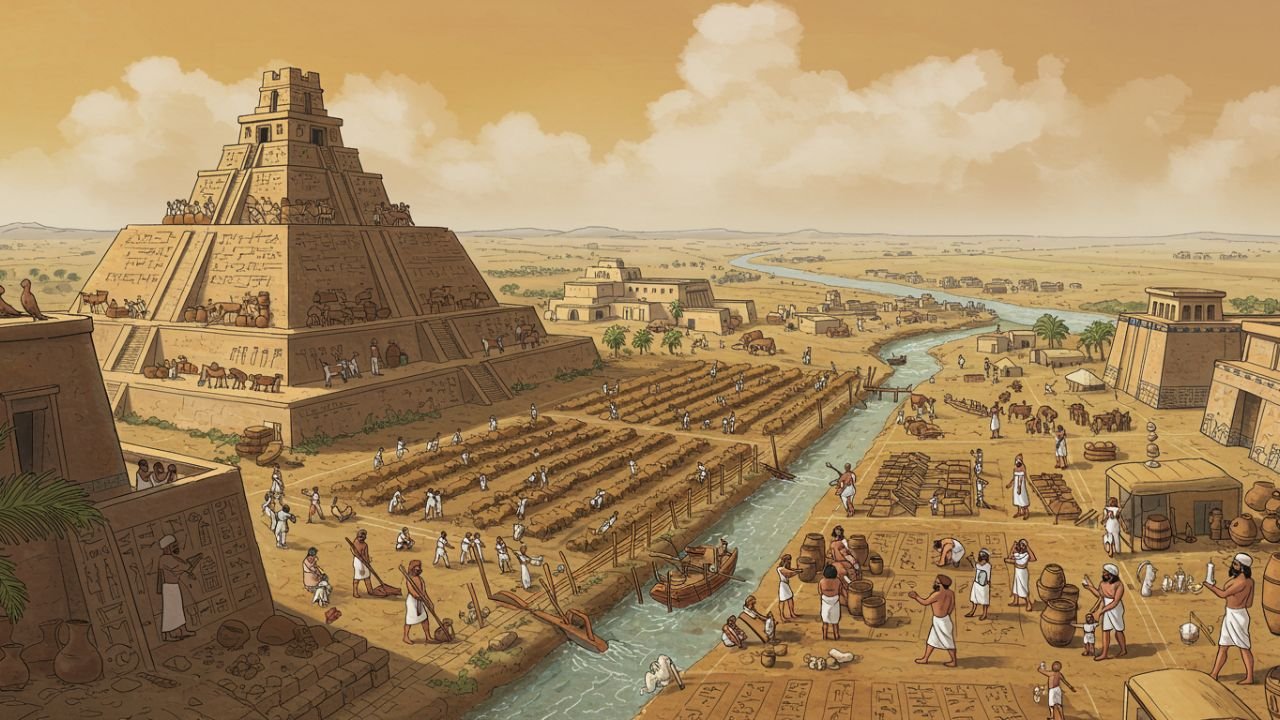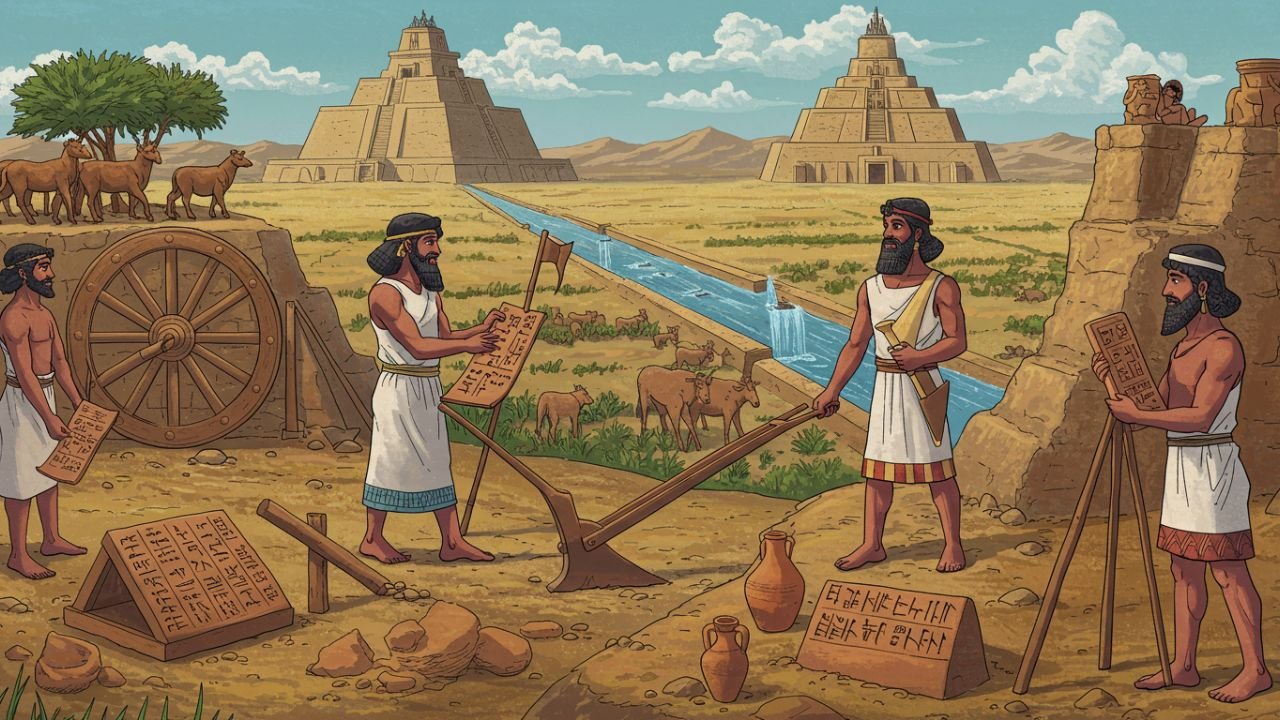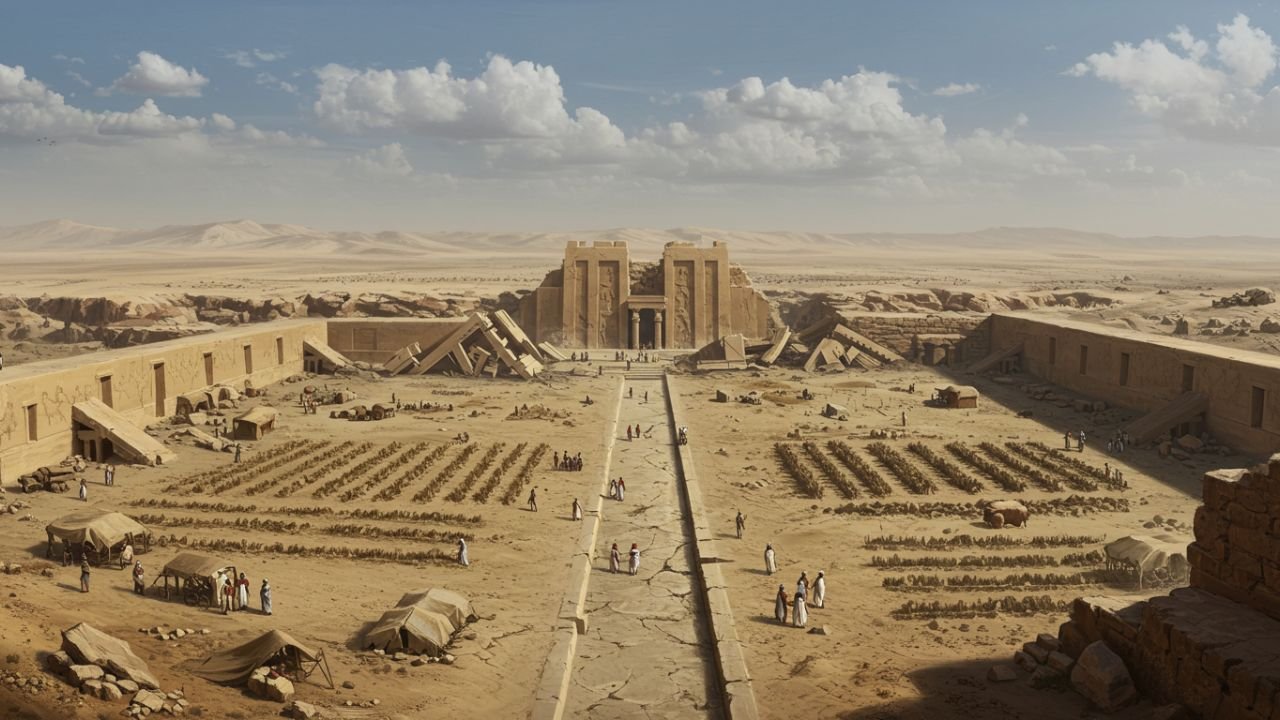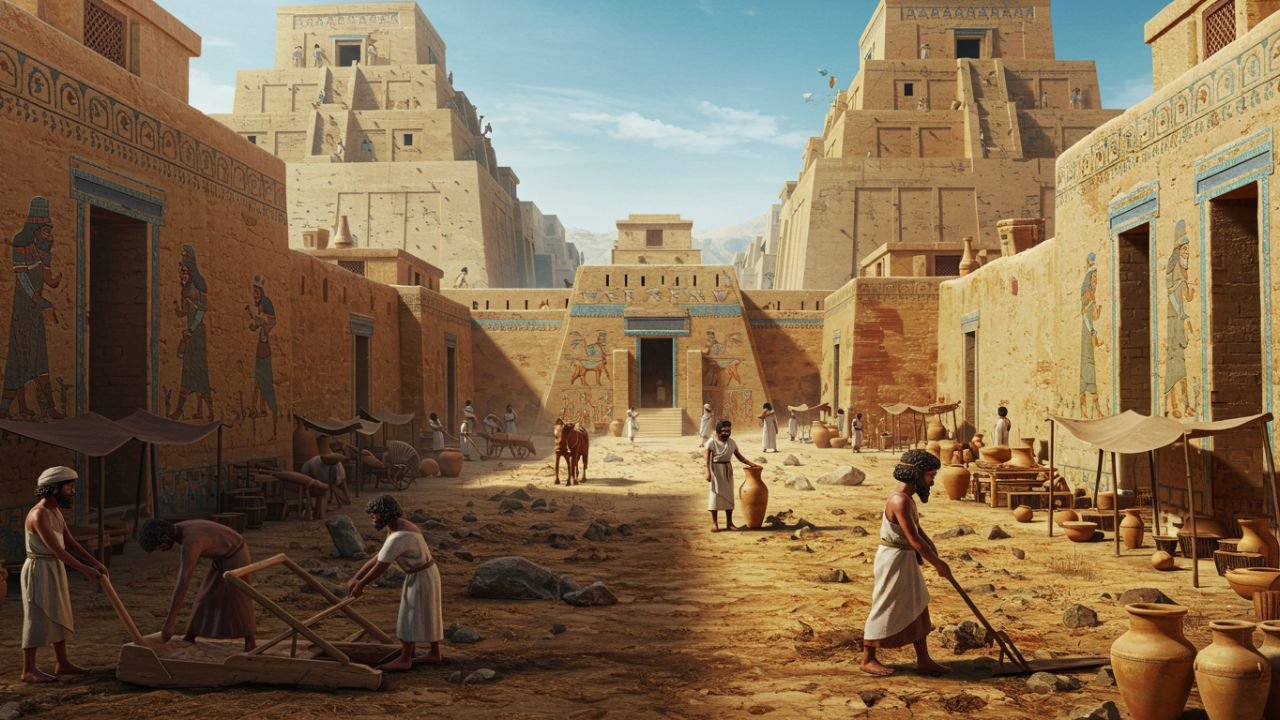Mesopotamia is known as the most ancient civilization in the world. However, to understand its historical significance, we need to understand what defines a civilization. Civilization is a complex society, distinguished by the development of the state, urbanization, symbolic systems of communication and many other factors. The archaeological remains scattered across the land marks the existence of the world’s oldest civilization. The word Mesopotamia originates from Greek and it translates to “Between two rivers”. The land is located between river Euphrates and Tigris: known as present day Iraq and Kuwait.
Many civilizations began and evolved in this fertile land. They built city-states, engineered irrigation systems, and developed early systems of mathematics and record keeping. These civilizations created inventions that are still used to this day. As many empires inhabited Mesopotamia so did many languages exist. Sumerian dominated ancient Mesopotamia for thousands of years. While Assyrian and Babylonia became widespread in the region.
History of the Land Between Two Rivers

One of the first civilizations to form in the fertile strip of land is known as the Sumer civilization, which was situated in Southern Mesopotamia around 4100-1750 BCE. While the Akkadian empire inhabited Northern Mesopotamia and the empire steadily rose to power from 2300-2100 BCE, it was also the first empire to rule the entirety of Mesopotamia. Akkadian empire’s rule lasted for 200 years and after the fall of the empire, two new empires began to rise in power.
Also Read: What were the tools and weapons in Stone Age?
The Babylonian Empire began to grow in the South and the Assyrians in the North. Power shifted between empires. Eventually, in 612 BC Babylonia rose to power. There were many other powerful influences and cultures in the land between two rivers, but everything began from the people of the first known civilization- The Sumerians.
Beginning of the Sumer Civilization
Mesopotamia was ruled by many empires but everything began from villages formed by the Sumerians, which then evolved into the first ever system of City-states. The first City in history was known as “Uruk” and the center of the city was known as the temple. Each city had their own protective deity, but for the Sumerian’s the city of Eridu and its God Enki- held a special place in their heart. These cities settled around fertile land and contributed to major agricultural flourishing of the region.
🔬 Subscribe to SciMail
Get the latest science discoveries straight to your inbox!
What did the people of Sumer invent?

The Sumerians are known for their various inventions:
- Mapped the constellations.
- Created the first city-states.
- Developed a numbering system based on units of 60.
- Used Mathematics through the Sexagesimal system.
- Established the first writing system through the Cuneiform script.
- Invented the Turning wheel that began the process of mass producing pottery.
- Established the process of collecting and channeling the flow of the two rivers-Euphrates and Tigris. The water was collected and regulated through systems of canals and then used to irrigate farmland.
What did the first civilization bring to the modern world
Sumerians established and divided a day into 12 hours of light and 12 hours of darkness, by using a sexagesimal system. They went on to divide the hours into 60 minutes. They also came up with 360 degrees in a circle, and these divisions are still used to this day. The lunar calendar was established by them and it still holds its place.
How did the first ever civilization collapse?

Despite leaving a huge mark on this world many factors contributed to the collapse of the Sumer civilization. Southern Mesopotamia suffered droughts and famine while the Akkadian invasions contributed to the weakened state of the empire. The collapse became inevitable as the Kings of Sumer could not hold on to power and their people were plundered by various empires. Hence, leading to the collapse of the most ancient civilization in the world. After the fall of the Sumer, other empires fought for power and eventually the Babylonian empire marked the end of the Sumer as a distinct power in Mesopotamia.


Leave a Reply